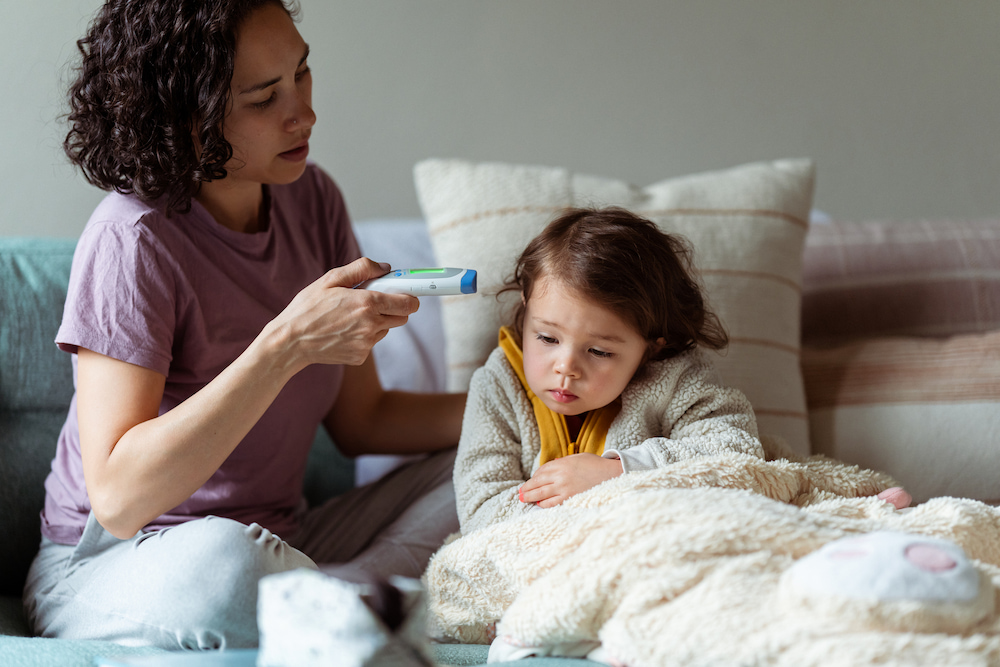A new vaccine for respiratory syncytial virus (RSV) is limited to vulnerable children in this jurisdiction, but a Canberra Liberals government would ensure all newborns and vulnerable infants in the ACT – around 7,000 children – could access the vaccine, opposition leader Elizabeth Lee announced.
ACT Health states that RSV is a contagious virus that is a frequent cause of the common cold. Almost all children will have had an RSV infection by the age of three years; most cases are mild, and do not require treatment. However, babies younger than six months old, especially if they have a weakened immune system, lung or heart disease, or were born prematurely, are at increased risk of severe illness. The vaccine, Beyfortus (nirsevimab), protects against RSV for at least five months after a single dose.
The Canberra Liberals would invest up to $2.6 million to ensure children in the ACT could access the immunisation for next autumn and the winter RSV season, Ms Lee said.
“The Canberra Liberals are committed to investing in our healthcare and investing in our children’s health,” Ms Lee said.
“Respiratory Syncytial Virus, or RSV, is one of the most common causes of respiratory infections and breathing problems in babies and children.
“This program will go a long way in protecting vulnerable newborns and infants against RSV, and it is important we take action and provide these immunisations for Canberra babies.
“The Canberra Liberals will always put the health of the community first, especially when it comes to the most vulnerable.”
The Therapeutic Goods Administration has approved BeyfortusTM (nirsevimab) for babies and children up to two years old who are vulnerable to severe disease, ACT Health states. It is only available in ACT hospitals as part of the NSW Health RSV vulnerable babies program.
Infants eligible for Beyfortus in the ACT include all premature babies born before 37 weeks gestation after 31 October 2023; all First Nations babies born after 31 October 2023; and other infants living with specific chronic and complex health conditions.
However, the TGA states that Beyfortus was approved for neonates and infants born during or entering their first RGV season (not only vulnerable ones), and children up to 24 months of age who remain vulnerable to severe RSV disease through their second RSV season.
Health minister Rachel Stephen-Smith stated that the ACT’s program was aligned with NSW’s, which followed the advice of the Australian Technical Advisory Group on Immunisation (ATAGI). Because the vaccine was brand new and supplies limited, ATAGI advised that Beyfortus should be targeted at the most vulnerable babies and young children.
“Although all infants aged <6 months entering their first season would benefit from nirsevimab, in the setting of supply constraints, it is important to prioritise those with risk conditions that put them at the highest risk of severe RSV disease and hospitalisation,” ATAGI recommends. “For infants and children up to age 24 months with a high risk of severe RSV disease due to certain medical conditions, use of nirsevimab before their second RSV season can be considered.”
“That’s exactly what we’re doing here in the ACT, in alignment with the NSW program and in partnership with NSW,” Ms Stephen-Smith said.
Shadow health minister Leanne Castley said the Liberals’ policy to provide these immunisations was a sensible preventative health measure that would ease the burden and cost of the emergency department and Intensive Care Unit admissions.
“RSV could rapidly turn severe, causing a range of respiratory illness including bronchiolitis or pneumonia,” Ms Castley said. “It was the most common cause of hospitalisations among infants and young children last year.
“Incredibly, despite Beyfortus being approved by the Therapeutic Goods Administration last November, until last month ACT Health’s website was advising Canberrans there was no immunisation to protect against RSV.
“Even now, it says the TGA has approved Beyfortus ‘for babies and children up to two years old who are vulnerable to severe disease,’ when in fact it is approved for all neonates and infants born entering their first RSV season.
“Other states, including Queensland and Western Australia, managed to secure sufficient supplies of Beyfortus to vaccinate newborns as well as vulnerable infants, but the ACT failed to plan for this.
“Clearly the Labor-Greens government has again failed to provide Canberra’s infants with the best available health service. A Canberra Liberals government will do so.”
Ms Stephen-Smith said that ACT Health would watch the Queensland and WA broader-based vaccination programs, and follow ATAGI’s advice.
The Federal Government wants to include RSV immunisations on the PBS; if that does not proceed, the Canberra Liberals say they would expand the program beyond 2025.



